Isobel Odendaal of Super Yachting South Africa on 25 Years in the Industry
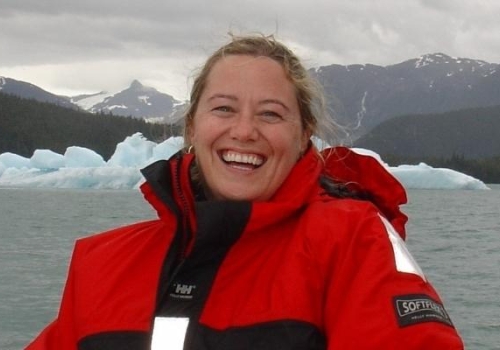
Isobel Odendaal is celebrating 25 years in the superyacht industry this year, and on speaking to the owner and director of Super Yachting South Africa, it’s clear that she has relished each and every one of them.
Working her way up from a stewardess to a purser during her ten years on board, Isobel left a life at sea to set up her renowned stewardess school back in 2007, which was one of the first schools in the world to be approved to teach the GUEST Steward/ess Programme.
In the first of our two-part interview, Isobel gives an in depth account into her life both on board and ashore, from her most memorable experiences to the growing importance of sustainability in both her training and the industry as a whole.
Can you tell us a little about your background and how you first got into yachting?
I started working in hospitality jobs when I was 15, and I guess in a way I was always meant for this career. I discovered a passion for people early on in life, and I loved seeing them happy and enjoying themselves.
After graduating from university in South Africa, I packed my bags and headed to the USA for two seasons as a Camp Counselor, and after the summer I travelled down the East Coast with a friend and was offered a job in a hotel in Key West, Florida. It was here, a few months later, where we randomly met some people who told us about a thing called yachting and the next day we headed to Fort Lauderdale – I found my first job on a yacht two weeks later.
I celebrate 25 years in the yachting industry this year, and it has been a blessing and a continuous journey of growth and discovery.
You spent 10 years on board, working your way up from stewardess to purser – what are some of your fondest memories?
Wow, where do I start? I think most obvious would be having the opportunity to travel to all the continents except South America (the nearest I got was going through the Panama Canal twice!). I’ve crossed the Atlantic Ocean 10 times. Some of my most special memories were also times spent in huge refits and new builds in Turkey, Vancouver, the Netherlands, Long Beach CA and Seattle, as you get to have a little normalcy – an apartment, a car to use, a lot of free time on weekends to go explore.
Secondly, I would have to say the crew I have worked with. Thanks to social media, it’s easier to stay in touch with people you have worked with – your crew becomes your family and I still speak to so many of them, participating in life’s ups and downs alongside them. A huge portion of my life has been in yachting, so many of my closest friends have come from this life, and no matter how long you are out there will always be a special bond and so many shared memories.
Having had the opportunity to serve many well-known celebrities and HNWI will, for me, always be a special privilege. A normal, down-to-earth girl from a small town in South Africa could never have dreamt of being in the company of such people, many of whom inspired me and even supported me to follow my dreams when I was considering leaving the industry. Maybe I was lucky, but I had a lot more good guests than horrible ones.
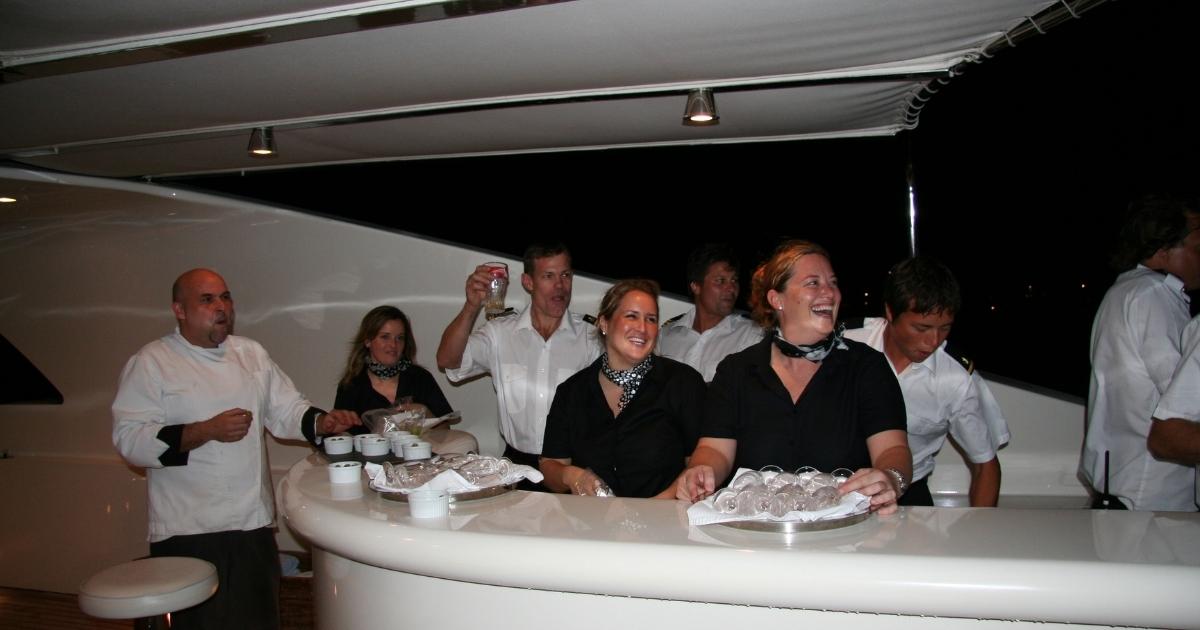
There are so many smaller memories too – driving the boss’s Porsche to a Marlins Game to enjoy his tickets in a VIP booth; delivering another’s Ferrari to Palm Beach with the first mate (who was beyond chuffed!); being flown for an interview in a private jet and meeting the interviewers at a posh penthouse office in Park Avenue in New York; and taking a helicopter to Whistler to meet prospective charterers and entertaining them for the weekend, where we stayed in a five star hotel, took them on snowmobile trips and enjoyed traditional cheese fondue high in the mountains of Whistler.
Then there was preparing and setting up sushi picnics in the mountain peaks of Alaska while our guests were heli-skiing; accompanying them on shopping trips to Rodeo Drive and Milan, and being invited as crew to dine in Michelin Restaurants - these were just some of the superb experiences that come to mind - all things that I never could have dreamt of doing and may sound too good to be true!
I always say to my students that I see a yacht as a piece of art, and every day I was fortunate enough to eat, sleep, work and live on a floating artwork - for me, that is the romance and passion of yachting. It gave me the opportunity to grow as a person, believe in myself and my strengths, know my weaknesses, to be organized, learn skills for financial planning, to analyze each and every problem and to think on my feet (even on the difficult days), and discover a new world out there filled with interesting foods, people, cultures, drinks and adventures.
I still get to relive many of these stories and memories while working with my students and of course, working as crew had prepared me for my next career, opening a steward/ess training centre. It set me up financially for all the goals I had set out to achieve.
If I may be allowed to mention one regret, it would be that in my yachting days, the focus was not as much on philanthropy as it seems to be in recent years. I would have loved to be part of a yacht crew that focused on ocean conservation, or rescuing dogs after a hurricane, or being part of an ocean research vessel visiting far off places like Antarctica – actually making a difference and building a better world and ocean.
I am happy that the focus has shifted more to conservation and humanity, and the longer I am involved in influencing young minds entering the yachting industry, the more I focus on environmental issues, eco-friendly cleaning and working in a more sustainable environment on board. We still have a long way to go in reducing the carbon footprint of yachting, but there are so many easy and small changes each crew member and owner can execute to achieve the greater good.
Why did you decide to pursue a career on land?
It’s no secret that yachting is exceptionally hard in many ways – the work hours, the small living conditions, not being able to have a pet. It’s tough on romantic and family relationships too, and you are always considering everyone else around you - you don’t even get to choose your own TV show if you are sharing a TV with 15 other people, your time is never your own. These were some of the things I started craving more and more, and I think what was also important is that I had an exit plan – so many people get caught in the ‘golden handcuffs’ and end up returning to the industry over and over.
For me, it wasn’t an option. I had a life and goals in South Africa and I knew it was time to pack my bags and head home. Anyone who has worked in yachting also knows that 10 years non-stop on a yacht is a very long time - no rotations and only about a month off per year, so I was feeling burnt out and didn’t want to end up being jaded and negative about something I loved for so long. In many ways, even now, I didn’t really leave yachting per se, so that makes my situation a little different.
You are now the owner and director of Super Yachting South Africa, why did you choose to set the company up?
I don’t really know the why, but I remember VERY specifically when I first told someone what I wanted to do after yachting. We were stuck in Palma de Mallorca in Spain due to the 9/11 attacks in the USA and were unsure if we could leave on Dock Express, so we spent a few days catching up with friends in Palma. My friend took me back to our yacht at anchor on the tender and I said to him that I was going to open a stewardess school after yachting. From then on, I was always collecting ideas for my stew course and once I returned home, it was a matter of sitting down and developing and writing the course.
Of course, starting a company was a huge learning experience and I don’t think I have ever stopped learning since. I could never have dreamt that it would have lasted so long, and it was scary to say the least, but I was not going to allow fear to hold me back. I met another former yachtie in South Africa and we set out to create relevant, useful, professional and trailblazing training courses at a time where there was only one other superyachting school in South Africa.
What does your role now entail?
I am a jack of all trades! Since the company’s inception in 2007, I have handled absolutely anything and everything. My biggest downfall is that I am a control freak, which means I don’t easily let go into the hands of other capable people. I still currently handle anything from course bookings, bookkeeping, developing courses, shopping for course supplies, writing all my own manuals and planning marketing and promotions to keeping the company websites up to date, building and maintaining professional relationships, printing, research and budgeting. Then there’s teaching all the steward/ess and chief steward/ess courses personally, answering dozens of emails each day, handling all social and other marketing (including running two Facebook groups, two Instagram pages, LinkedIn profile and Twitter), authoring regular articles and blogs, writing course graduate evaluations, assisting course graduates with compiling and editing their CVs, staying up to date with any new developments in yachting, attending boat shows (if Covid ever allows us to again!), and everything in between.
Can you talk us through some of your training programmes?
I take great pride in having personally taught over 2,000 steward/esses and chief stews in the past almost 15 years. I place great emphasis on the discipline of yachting during my courses and students are taught about PPPPSFCT throughout the course – Professionalism, Punctuality, Pro-Active, Preparation, Safety (first), Flexibility, Communication and being a Team Player. This is sort of our motto in everything we try to achieve at the school – we focus on creating a responsible, professional, disciplined entry-level crew member who contributes positively and acts professionally in each yacht position they are given. Unfortunately, this industry isn’t for everyone and some less desirable candidates sometimes slip through the cracks, but the industry has a way of eventually pushing them back out onto the sand.
I am fanatic about professional behaviour because I feel it is our duty to fulfil our roles on board with focus, discipline, professionalism and all working towards the common goal – to make our guests’ stay the very best each time they visit the yacht. I also believe very strongly that we have to earn respect from other departments on board and of our guests. If we go around every day not knowing our port from our starboard, we will always just be “toilet cleaners” on board.
My biggest question I kept asking when compiling the course was: “What would I have loved to know before entering the industry?” What I am trying to say is that the course isn’t just a syllabus, it is teaching professionalism in everything we do during their time at the school and in the classroom. I encourage students through simulating different yachting scenarios and problems at them and developing their ability to solve problems with initiative and independence.
The most popular course at the school is the junior steward/ess course, and this takes up most of my time. It is a five day introductory steward/ess training course divided into three sections: Interior, Fine Dining Service and Wine and Cocktails.
What is your busiest time of year?
January to May is by far our busiest training time – many of our students have finished school, university etc. and crew are preparing to join the industry for the Mediterranean season. Due to immigration and visa changes in the USA, we only recommend them to go to the Med to look for their first entry-level jobs, so they ensure they are ready to fly over by late March to early June. Covid has of course changed many entry-regulations into countries all over the world, so it has been a challenging two years. We don’t know what the future will bring regarding travelling over borders, but we are seeing a huge change towards yachts preferring vaccinated crew over non-vaccinated individuals.
Where do the majority of your students come from?
Mostly from South Africa, but also many from Africa and a large portion also hail from as far as Sweden, France, Seychelles, USA, Mauritius, Italy, Australia, New Zealand, Philippines and even some from Ukraine and Poland. The weak South African Rand makes it a favourable destination, not only for training, but for world-class accommodation, hospitality and natural beauty our country provides, so most of our foreign clients stay to travel long after their training has been completed.
Is sustainability a big part of your training?
Absolutely – probably one of our main goals with the entry-level crew we work with. As each year passes and the world’s oceans become more threatened, I build in more and more tips and advice on sustainable and eco-friendly cleaning methods, recycling and laundry methods. We discuss sustainable vs irresponsible rubbish disposal, responsible parenting (for instance, not using disposable diapers), environmental-friendly cleaning products and laundry practices, using natural, reusable fabrics when selecting cleaning cloths, creating awareness of natural vs chemicals through explaining how all our grey water ends up in the ocean. I try to influence choices towards more reusable items vs ‘one time use’ items and I even take our class rubbish home and separate it into recycling bins to ensure we reduce our wastage!
Are there any specific challenges that South African crew in particular face when attempting to get into the industry?
Our biggest challenge since the inception of yachting has always been the visa issues. It has definitely not gotten any easier - in fact it has become even worse since the Covid pandemic. There is not one simple solution for this, but unfortunately some South Africans abusing the visa allowances and regulations have made it harder for others trying to enter European or USA waters.
Over the past decade or so, we have also seen a less than desirable South African enter the industry (due to various troubles and unemployment in South Africa) and ruin the previously positive reputation of the older SAFFA yachting generation. However, again, there is not a simple solution to weed out the bad apples, but as I always encourage my students, only South Africans can improve this reputation by not allowing these individuals to behave like hooligans and to not associate with them and to prove to the industry that we CAN be great workers.
We have thought long and hard about solutions for this problem and we are currently seriously considering a very strict screening process for each candidate prior to receiving training at SYSA, however if not all local yachting schools have this screening process and standards of entry, it will not be eradicated anytime soon. These challenges go hand in hand – the less desirable the candidate and the more they cause problems in a foreign country, the less a country is inclined to allow nationals from that country to enter their country.
You were a finalist in the ACREW Yachting Lifetime Achievement Award in 2020 and nominee in the ACREW Yachting Mentorship Award in 2021 – what did this mean to you?
Both were really big and pleasant surprises! It is of course a great honour and very humbling to be recognized after so many years of hard work in an industry that I am so passionate about. I am very proud to have even been nominated and huge congratulations to the winners of these categories. It is tremendous that ACrew has created a platform for yachting professionals’ hard work and dedication to be celebrated, recognized and honoured.
Tell us a lesser-known fact about yourself that would surprise your colleagues.
I devour crime novels, crime TV shows and documentaries. I realised that I cannot afford all the expensive items a yacht owner has, but I have three weaknesses – Le Creuset cookware, Riedel crystal glassware and Zwilling knives. I think in another life I was a chef – or maybe I am just a wannabe! My husband and I are HUGE food/cooking/chef programme addicts and binge watch this any chance we get.
My happy place is at our beach house near Hermanus in South Africa where we can take our three rescue dogs for walks on the cliffs. I think my biggest wish is to one day purchase a huge piece of land to open a dog rescue centre, and my favourite drink is a good South African gin and wines (sorry France and Italy!).
My favourite saying for the Covid-era is: “Just because the world is in lockdown, does not mean your dreams and goals have to be in lockdown too”. We can still achieve whatever we set out to do, maybe it is a little more challenging, but it is never impossible.

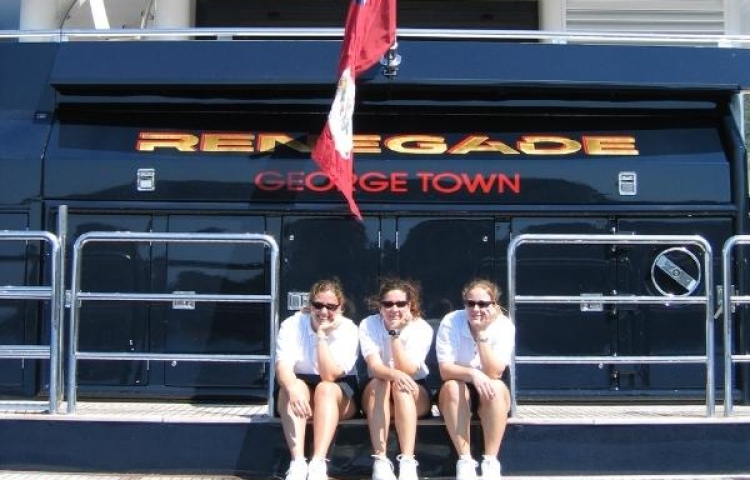
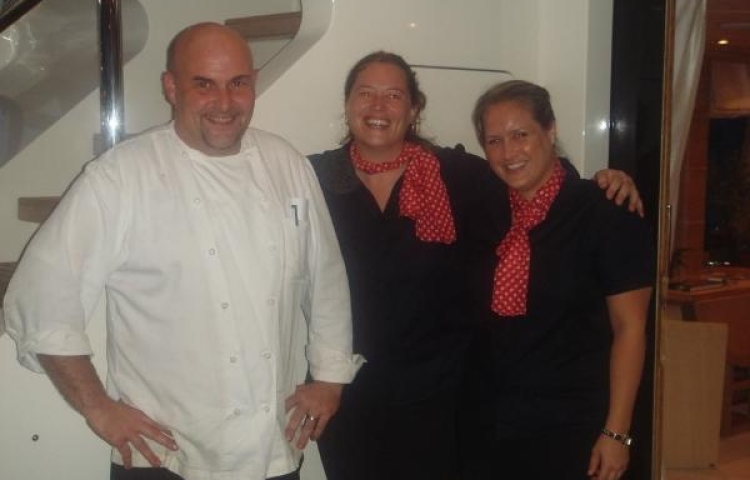
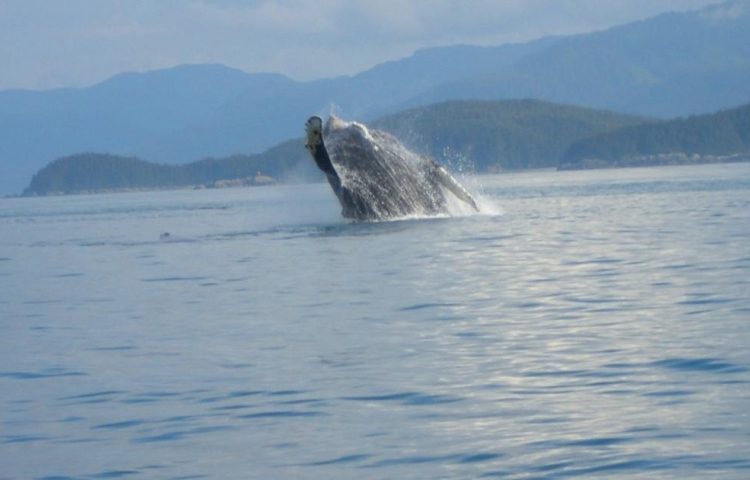
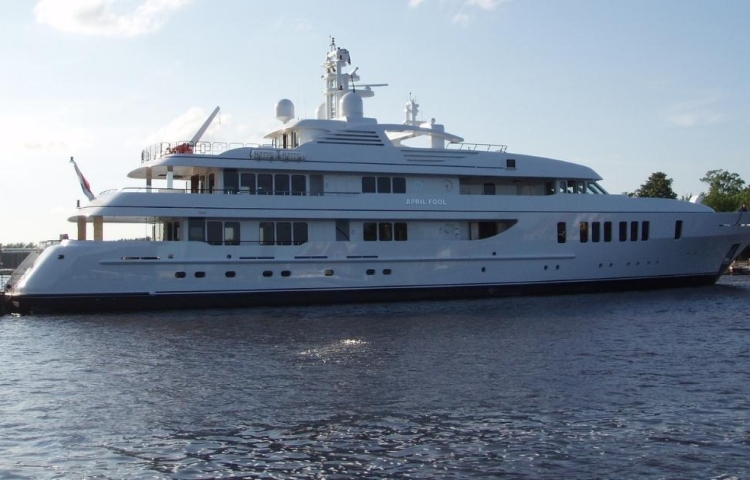
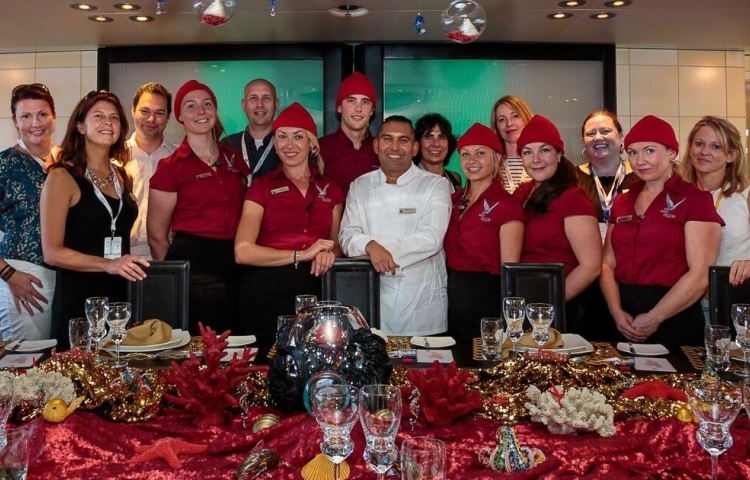
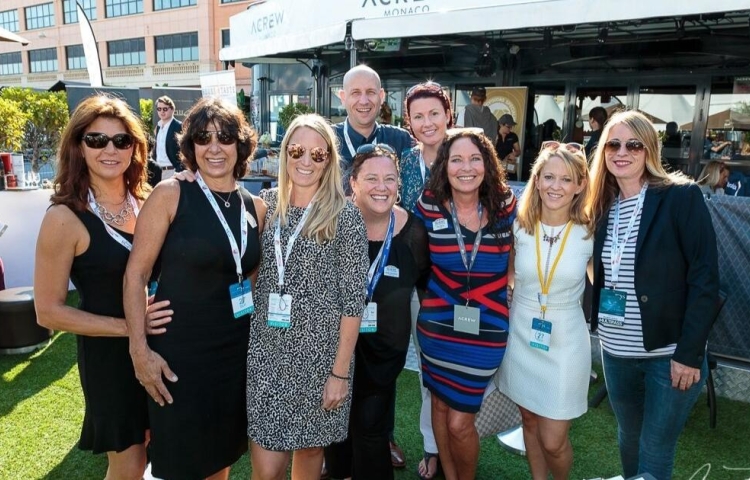

Post your comment
You cannot post comments until you have logged in.
Login to post a commentComments
No one has commented on this page yet.
RSS feed for comments on this page | RSS feed for all comments